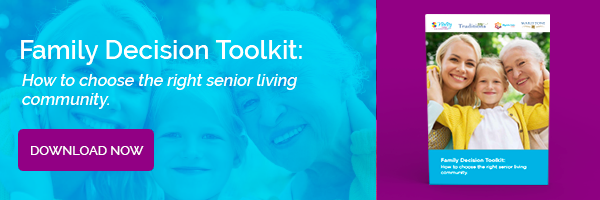Dementia can feel overwhelming at first, but gaining knowledge is one of the most empowering steps a family can take. At Vitality Living, we’re here to help you navigate the journey with compassion, clarity, and confidence. Whether you’re just beginning to notice the early signs of dementia in a loved one or you’re researching long-term care solutions, this guide will walk you through the essentials of understanding dementia, its progression, and how to create a meaningful dementia care plan.
What Is Dementia?
Before anything else, let’s clarify: What is dementia?
Dementia is not a single disease—it’s an umbrella term used to describe a group of symptoms affecting memory, cognitive function, and social abilities. It interferes with a person’s daily life and independence. Alzheimer’s disease is the most common form, but there are others, such as vascular dementia, Lewy body dementia, and frontotemporal dementia.
For individuals facing dementia, specialized care like memory care can offer support to enhance quality of life and provide the tailored assistance needed for managing these challenges.
Recognizing the Early Signs of Dementia
Knowing the early signs of dementia can help you and your loved one take proactive steps. While changes in thinking are a normal part of aging, dementia affects more than memory—it impacts communication, reasoning, and behavior.
Early on-set dementia symptoms include:
- Memory loss that disrupts daily life
- Difficulty planning or solving problems
- Confusion with time or place
- Trouble following conversations or finding words
- Changes in mood, personality, or social withdrawal
Noticing these symptoms doesn’t mean someone has dementia, but it’s worth talking to a healthcare provider to learn more about possible causes.
Understanding Dementia Stages
Dementia progresses in stages, and understanding those dementia stages can help families prepare emotionally and practically. While experiences vary, most people move through the following phases:
- Early Stage: Symptoms are mild and may be mistaken for normal aging. Individuals can often live independently with some support.
- Middle Stage: Memory and cognitive issues become more noticeable. Assistance with daily tasks like dressing and managing medications is often needed.
- Late Stage: Individuals may lose the ability to communicate clearly and require full-time care.
Each stage brings its own challenges—but also opportunities for connection, creativity, and compassionate caregiving. A dedicated memory care community like Vitality Living provides personalized support, structured routines, and engaging programs designed to meet residents where they are, helping them live with dignity and purpose at every step.
Creating a Dementia Care Plan
A dementia care plan is more than a checklist—it’s a thoughtful approach tailored to your loved one’s evolving needs, preferences, and values. It includes everything from medical care and safety precautions to social engagement and emotional support.
Your plan should consider:
- Medical care providers and medication management
- Daily routines and personal preferences
- Communication strategies as language changes
- Legal and financial planning
- Options for senior living and memory care
Having a dementia care plan in place brings peace of mind—and helps everyone involved provide more consistent and meaningful support.
When to Consider Memory Support Communities
As dementia symptoms progress, families often find that professional support becomes essential. That’s where senior living communities offering dedicated memory care can make all the difference.
Vitality Living offers specialized memory care communities designed for individuals with dementia, where residents are met with dignity, safety, and a deep sense of belonging. Our specialized caregivers are trained in both clinical knowledge and empathy, helping each resident thrive within their capabilities.
What makes our approach unique:
- Structured environments that reduce confusion and anxiety
- Personalized engagement based on life history and interests
- A culture that celebrates each individual’s worth and story
You’re Not Alone
If you’re on this journey with a loved one, know that you’re not alone. Thousands of families are also learning about dementia symptoms, researching dementia stages, and creating their own dementia care plan.
Vitality Living is here to walk alongside you—not only as a provider of exceptional senior living options but as a partner who understands the emotional weight of these decisions. Our team is always ready to answer questions, offer support, and help you navigate every step of the way.
Explore Supportive Memory Care at Vitality Living
Empowered families make empowered choices. Download our full guide to understanding dementia or contact us to learn more about our memory support services. Together, we can create a path forward that’s informed, compassionate, and full of vitality.
Be You. Be Vibrant. Belong.



